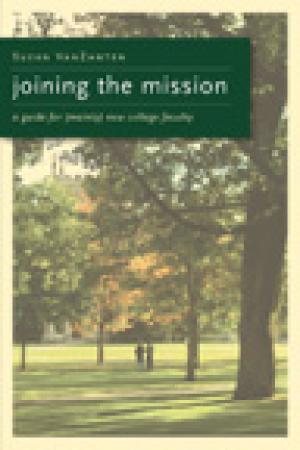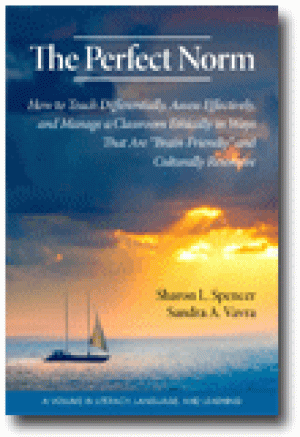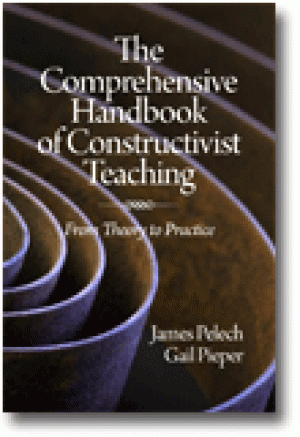Resources
One page Teaching Tactic: prompting student discussion using word clouds.
This article explores how to teach students to drink deeply from books. Drawing on the work of Peter Elbow, the article argues for incorporating experiential assignments that are structured to create a mediating realm between abstract concepts and concrete experiences. The bulk of the article explores in detail the author's use of such assignments first in a course on sexuality and religion and, second, in the standard Introduction to Religion course.
This essay explores a midrange teaching and learning issue regarding the teaching of biblical languages and one strategy for addressing the issue. Seminary students do not yield a great enough return in exchange for the investment they are required to make in learning biblical languages. Students invest great time and money, but they do not learn to use the biblical languages to think critically about the Bible. This essay argues that a fruitful strategy for addressing this midrange issue is to require students to write in English about the Hebrew language. This strategy fosters students' ability to think critically about the biblical text. It also fosters their ability to use their budding knowledge of a biblical language to engage questions of meaning and issues of interpretation.
What is contemplative pedagogy and how is it practiced in Religious Studies classrooms? Contemplative pedagogy cultivates inner awareness through first-person investigations, often called “contemplative practices.” Contemplative teaching practices range widely: silent sitting meditation, compassion practices, walking meditation, deep listening, mindfulness, yoga, calligraphy, chant, guided meditations, nature observation, self-inquiry, and many others. Since narrative is a mode of instruction prevalent in contemplative literature, the article includes first-hand reflections from students and a narrative account of how an initially skeptical professor came to incorporate contemplative teaching methods into her courses. It expands from the personal narratives to highlight the work of many contemplative professors in the field. These real-life examples are put into the context of recent publications on shifts in higher education and meditation research. The article seeks to demonstrate the power of contemplative teaching to fulfill many hopes for liberal arts learning. Of particular importance is its emphasis on interior qualities of lifelong impact, such as self-knowledge and ethical cultivation.

Journal Issue.

Journal Issue.

Journal Issue.

Joining the Mission is a helpful guide for new (and experienced) faculty at religious colleges and universities. Susan VanZanten here provides an orientation to the world of Christian higher education and an introduction to the academic profession of teaching, scholarship, and service, with a special emphasis on opportunities and challenges common to “mission-driven” institutions. From designing a syllabus to dealing with problem students, from working with committees to achieving a balanced life, VanZanten's guidebook will help faculty across the disciplines — Art to Zoology and every subject between — understand better what it means to pursue faithfully a vocation as professor. (From the Publisher)

Our goal in writing this book was to validate teachers for strong efforts in their life's work. We often observe teachers' frustrations with what they perceive to be a multitude of different hot topics in education that they must attend to now, but which they expect to come and go, like the last hot topics. So, we wanted to help readers see similarities between many of these hot topics-differentiation, multiple intelligences, culturally responsive teaching, brain-friendly strategies, authentic assessment, and ethical classroom management which we feel are not flashes in the pan. And we trust that serious practitioners will not oversimplify the findings of neuroscientists and their application to education. Reading studies and books by scientists, a number of which are user-friendly, can help ensure that teachers separate the hype from credible information. We have seen this professionally judicious approach in the work of graduate students (Kolinski, 2007) in adopting brain-friendly strategies. We have intentionally packed both theoretical/research-based and practical information in this book because professional educators want to know why they should use certain approaches, models, and strategies. In turn, as professionals, we should be able to explain why we teach the way we do-not to justify, but to educate others about our knowledge-based, reflective, decision-making processes and the impact on student learning. Thus, it is important to read Chapter 1 because it lays a foundation. Each succeeding chapter (2-6) has unique and compelling twists and turns-chock full of ideas to use or to adapt. It is possible to gain lots of ideas, processes, and strategies from reading and implementing (or adapting) even one of the unit chapters, or a part of it. While some of the units are explicitly about literacy, others focus on content using reading, writing, speaking, and listening as critical in the learning process. Thus, literacy skills are reinforced and strengthened. Additionally, some of our colleagues and public school partners have given us feedback that they wanted to implement some of the units and activities themselves. So, feel free to use this book for self-exploration and professional development. (From the Publisher)

While many people talk about the Constructivist philosophy, there has not been a publication that provides a detailed description of what a Constructivist classroom sounds like and looks like. This book fills that void by examining the philosophy, translating it into teaching strategies, and providing over forty examples. These examples come from the elementary level up to and including the collegiate level, and include all content areas. These examples show how the Constructivist educator uses the linguistic mode, the visual mode, and the kinesthetic mode to create a class environment in which the Constructivist philosophy flourishes. Examples of student work are provided; the book also includes chapters on note-taking, Problem-Based Learning (PBL), action research, and other Constructivist resources. Written in user-friendly form, this book presents a concrete and step by step approach for translating the Constructivist philosophy into classroom practice. This book is intended for every Constructivist researcher, practitioner, and teacher-educator. The researcher and teacher-educator will benefit from topics such as the history of Constructivist thought, the principles of Constructivism and action research. This book is more than a list of recipes, and this will be beneficial to the practitioner. Starting with the principles of Constructivism, and bridging to four basic teaching strategies, the practitioner is guided on how to use different learning modes and meta-strategies to create a true Constructivist practice. An educator's life is made up of one's philosophy, teaching principles, daily strategies,resources, and research tools. This book provides an in-depth look, from the Constructivist perspective, at each one of these components. In every sense of the word, this book is truly comprehensive. (From the Publisher)